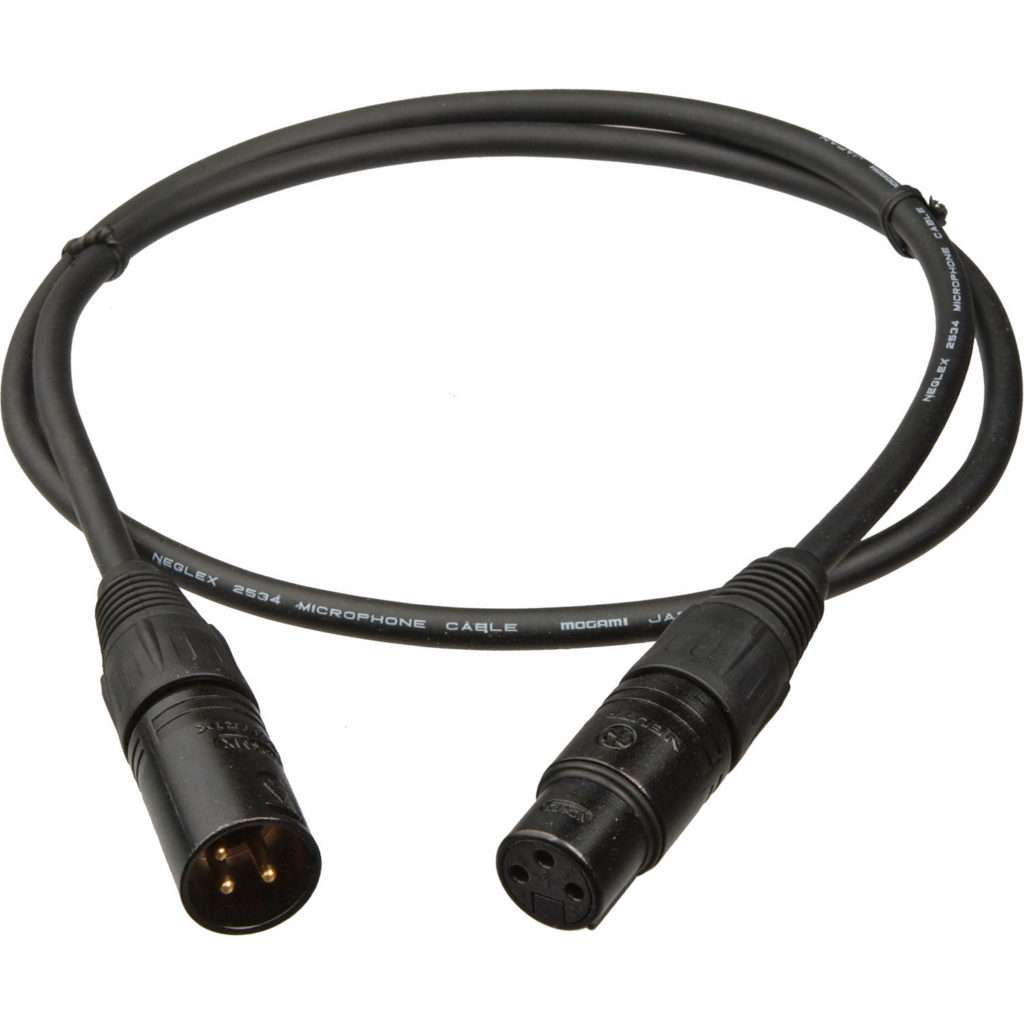
XLR cables are quite common in music and audio production work mainly because they are balanced cables.
Balanced cables are simply cables that designed for a very specific applications which are situations where you have to run cables over a long distance for example a stadium set up for a performance.
That’s not the only use for balanced cables, they are also particularly useful in recording studios where noise is a huge issue and there are long runs with very small signals like from a microphone for instance.
The question that I encounter alot from newbie producers is;
“Do XLR Cables Sound Better?”
XLR cables have a very low signal to noise ratio which makes them less susceptible to noise. This makes them sound better, clearer and more detailed. They will often be the cable of choice in setups like recording studios where noise is a huge issue and is to be avoided at all cost. Signals sent via an XLR cable will be shielded from unwanted interference which makes them deliver a high quality signal free of noise.
XLR cables are the cables you need in recording studio situations because you’ll be guaranteed that the signals you run through them will reach the destination without being altered.
Do Balanced cables sound better?
Cables on their own do not really alter sound as much as one would think. They certainly help in getting accurate signals.
Balanced cables are often much better at reducing sounds, interference and noises that may arise from electronics and electric connections.
This feature allows balanced cables to transfer clean audio signals to and from sources, this is why its common for people to say that balanced cables sound better than other cables.
Is XLR better than jack?
For professional setups where you need good cable connections e.g in recording studios, podcasting setups etc. You’re better off going for an XLR cable rather than a jack connection because they are unbalanced signals.
In my opinion XLR is definitely better than a jack connection because with an XLR you’ll deal with no noise due to their low signal to noise ratio.
Jack’s are pretty much unbalanced which makes them quite unreliable and highly susceptible to electric field noises that could arise from any sources.
Plus, balanced cables also give you the advantage of transferring sound signals over a longer distance without any alteration in the signal.
Should I use RCA or XLR?
Well, the mode of application for these two cable types will be highly dependent on what you want to do exactly. That will pretty much determine which cable type you’ll pick and further work with.
My preferred connection type is always XLR because I mainly use this connection type in my recording studio.
I’ve found that working XLR connections allows for better quality audio and a lot more usability when dealing with long running cables.
Furthermore, RCA cables are basically unbalanced which makes them vulnerable to noise, which means your audio signals will be susceptible to electric noises like buzzing, feedback etc.
Is Balanced XLR better than RCA?
XLR is definitely better than RCA mainly because of its ability to safe guard and transfer audio signals over a longer distance without running the risk of losing the audio or it being compromised.
This makes it offer better quality audio, unbalanced RCA cables are basically more prone to picking up interference,
but for balanced XLR you don’t have to worry about this because they’ll preserve and protect your audio signal.
What does XLR stand for?
XLR stands for External Line Return. It is basically a connector that is often times used in professional audio and visual equipment.
The design behind XLR’s was aimed at creating connectors that are capable of carrying large electrical currents clean without interference and providing a good connector for most audio devices like speakers, microphones, audio interfaces and other record equipment.
Are thicker XLR cables better?
Standardized thick XLR cables will do no better than a normal XLR cable so it’s really pointless that you’ll get different results with a thicker XLR.
The basic goal of XLR connectors is basically the same, which is to run audio signals cleanly without noise interference.
Can XLR cables go bad?
XLR cables like any other cables are susceptible to wear and tear. Therefore issues of durability will come into play here, and XLR cables like any other cable will eventually go bad depending on how it’s used.
The materials that are used to manufacture these cables are susceptible to various external stimuli that can destroy them.